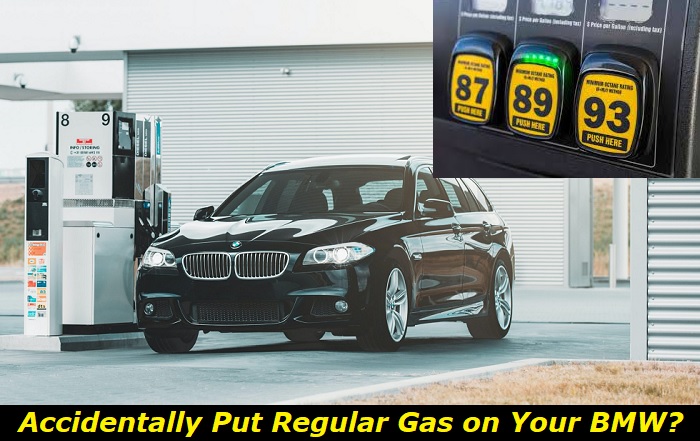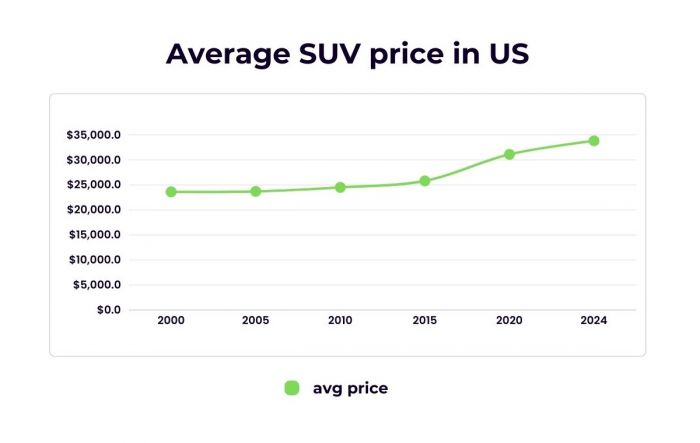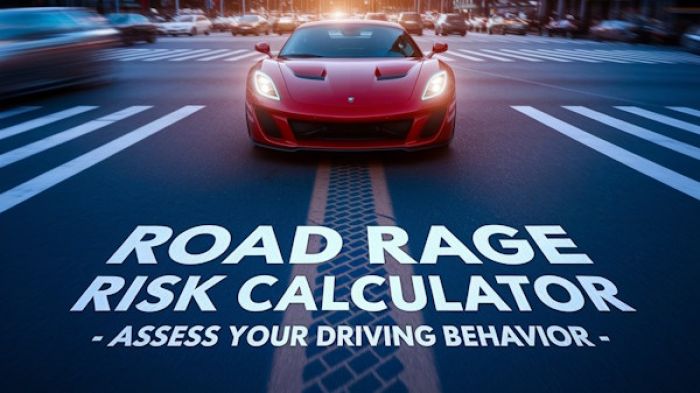Updated by Dmitry Sapko in January 2024
If you put regular gas in your BMW vehicle accidentally, there is nothing to worry about. The worst thing that may happen is the negligible loss of power. When you buy some premium gas again, the power will come back.
But doing so regularly is not a good option. In the long run, the regular gas may cause valve issues, problems with detonation and engine knocking, issues with buildups in the engine, etc.
Fuel-related mistakes highlights
- Level of importance:Medium
- Can you drive?Usually, yes
- DIY inspection:Possible
- DIY repairs:Mostly,impossible
- Price of repair:$100 - $650
- Commonreasons:Wrong fuel, wrong repair procedures
- How to fix:Never drive the vehicle with the wrong fuel in the tank, always go for professional help

So, make sure you use only the recommended gas.
But you should also know that some legendary BMW engines allow you to use regular gas with zero consequences. Just search for this info in the driver's manual.
Why do BMWs Use Premium Gas?
Although not all BMW vehicles require premium gas, it is safe to say that most do. Most of these vehicles are recommended to run on premium gas as it is more suitable for their engines. Premium gas is preferred due to its higher-octane level and suitability for the engine in the vehicle.
Note that not all vehicles require premium gas. Putting premium gas into a model that does not need it is just a waste of resources. BMWs use premium gas because it provides the energy they require to run at their best. Energy, which a regular gas cannot generate because it burns up quickly.
Even though the standard level of gasoline generally is 87, premium gas has a higher rating. This can be as high as 92 for many premium gases but never below 90. The higher the octane in the gas, the slower the fuel will burn.
What Will Happen If You Put Regular Gas in BMW?
Physically, putting regular gas in a premium BMW may not have noticeable damage or repercussion (as well as in Mercedes and other vehicles). Therefore, there's no need to worry about whether the physical condition of your vehicle will be damaged.
If you have placed the wrong gas in your BMW premium vehicle, you don't have to worry. If you didn't make a practice of this error, there's no issue or effect on your engine. It is unlikely that your vehicle's engine will be affected by this mistake. Since the octane level of regular gas is not far from a premium gas, the effect is negligible.
Your car's gas mileage will not be affected much as a result of that one occurrence. Nevertheless, if the action is not consistently repeated, you can expect to not have any detrimental effect in the long term. While your engine will not be affected by a mistake or using regular gas, chronic use may interfere with its performance.
Because there are a few things that can go wrong if you put regular gas in your premium tank. If the recommended gas for your vehicle is premium, don't attempt to use regular gas. Although putting premium gas in a regular fuel tank has no negative effect, the reverse can be bad.
First and foremost, you should examine the owner's handbook for your vehicle. Turn to the section on fueling your engine and check out the specification on gasoline. Find out if premium gasoline is compulsory or optional.
Using ordinary fuel against your car's specifications might cause harm over time. Prolonged usage might cause engine knock, which can violate your car's warranty, especially if it violates the handbook's recommendation.
Using regular gas in your premium motor will almost certainly cost you somewhat extra, depending on local gas pricing. When your premium car operates on regular fuel, the performance is limited and this can affect the engine if consistent. So, once again, we recommend that you just follow the instructions in the manual.
I Accidentally Put Regular Gas in My BMW, What Should I Do?
If this happens by accident, there are a few steps you can't take to reduce the effect it will have on performance. If your tank wasn't filled to the brim, you can mix the regular gas with some premium gas.
Surprised? Mixing the tank with a gas of higher-octane levels will help to increase the octane level of the previously filled gas. If equally mixed, this should raise the new octane level to an average of 90.
While 90 is not high enough to be regarded as premium, it will help stabilize the performance of your BMW. Also, not every BMW is affected by using regular gas. Some requirements are responsible for the use of premium fuel in vehicles.
If your BMW was made before 1996, is not turbocharged, or belongs to the M series, refer to your manual. The criteria mentioned above are the BMWs that require the use of premium gas. Hence, if your vehicle is not one, you most likely need regular fuel.
Why Does the Gas Matter?
The type of Gas matters because of the different combustion properties of the gases. Every vehicle has its energy requirement and method of generating them. Regular gas is suited for the moderate user and does not produce excess energy. For this reason, it is cheaper and easier to find.
However, premium gas is more expensive (only a few cents difference) but produces more energy to sponsor the required performance. Not using premium gas may not break your engine but it will limit the performance of your high-compression engine.
What Happens When You Mix Regular and Premium Gas?
Mixing regular and premium gas is a practice that can help to maintain octane stability in vehicles accidentally filled with regular gas. While it does not cause any damage to the engine, it is not advised.
When this is done, a regular gas with an octane level of 87 is mixed with a premium gas having an octane level of 92 and above. The resulting gas is sub-premium with an octane level of about 90.
Final Words
Accidentally putting regular gas in BMW will not cause any long-term damage and will only limit its performance. However, if continuously repeated, it may cause the engine to knock due to its non-compatibility.
It is advised that you check your vehicle's manual to find out the right gas to feed the engine. One way to minimize the effect of accidental filling is to mix it with premium gas to increase its octane level.
About the authors
The CarAraC research team is composed of seasoned auto mechanics and automotive industry professionals, including individuals with advanced degrees and certifications in their field. Our team members boast prestigious credentials, reflecting their extensive knowledge and skills. These qualifications include: IMI: Institute of the Motor Industry, ASE-Certified Master Automobile Technicians; Coventry University, Graduate of MA in Automotive Journalism; Politecnico di Torino, Italy, MS Automotive Engineering; Ss. Cyril and Methodius University in Skopje, Mechanical University in Skopje; TOC Automotive College; DHA Suffa University, Department of Mechanical Engineering






Add comment